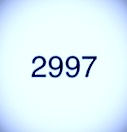Infinite Prime Numbers
- Uttkarsh Kohli

- Aug 22, 2020
- 3 min read
I am currently reading the book - 'The Simpsons and Their Mathematical Secrets' by Simon Singh. The book uncovers the use of mathematics in the popular animated series. Mathematics was often snuck into the episodes as an equation written on the whiteboard, as one of the characters holding popular math books or the use of statistics to win baseball games. This is not surprising as some writers of the show have advanced mathematical degrees and a passion for the subject.
In the chapter of background information about the writers and the show, one of the writers recalled asking the question about infinite primes in their youth. Although he criticises himself for asking such a stupid question, we realise that it is not at all obvious, or at least the proof isn't.
I am going to write about prime numbers, Euclid's proof for infinite primes and a proof for the statement: Each natural number greater than 1 is either a prime or a multiple of prime numbers.

Some basics of prime numbers:
Prime numbers are natural numbers with the unique property of only having 2 factors -
1 and the number itself (with the exception of 1).
The first few prime numbers are : 2, 3, 5, 7, 11, 13, 17 and so on.
2 is the only even prime number as 2 becomes a 3rd factor for all the other even numbers.
My favourite subset of prime numbers are the mersenne primes.
Mersenne primes are denoted as primes of the form 2^n - 1.
Eg: 2^2-1 = 3 and 2^3-1 = 7.
Statement: There are infinite prime numbers.
Proof (By contradiction):
Let there be a finite list of prime numbers: {p1, p2, p3, p4....,pN}
Define a number X = p1*p2*p3......*pN + 1.
The number X is either a prime or it is not a prime number.
Case 1: X is prime
A new prime number has been found which is not in the list.
Case 2: X is not prime
Since each number is either a prime or a multiple of prime numbers (proof for this below),
X is a multiple of a prime number.
This prime number is not a part of the list as each of the primes in the list leave a remainder of 1 when X is divided by them.
A new prime number has been found which is not in the list.
Thus, by contradiction the original assumption of a finite list of prime numbers is false.
Proved: There exist an infinite number of primes.
Each natural number greater than 1 is either a prime or a multiple of prime numbers.
Proof (By contradiction):
Let's take a number N which is the smallest number such that it is neither a prime number nor a multiple of primes.
N = a*b ( a,b ∈ N)
Since N is not prime, a or b are not equal to 1 or N.
1< a, b <N.
a and b are natural numbers smaller than N and thus they must be prime or multiples of prime as N is the smallest number that isn't either.
But if they are prime or a multiple of primes, then N is a multiple of primes.
Thus, by contradiction the original assumption of having a number such that it is neither a prime number nor a multiple of primes is false.
Proved: Each natural number greater than 1 is either a prime or a multiple of prime numbers.
Check out my youtube channel for calculus, complex numbers and more! https://www.youtube.com/channel/UCwNm1kuCtzlTRW4dsfvC_Mg/featured
Resources:
1)The Simpsons and Their Mathematical Secrets by Simon Singh.
2) Euclid's Proof: https://en.wikipedia.org/wiki/Euclid%27s_theorem#Euclid's_proof



Comments